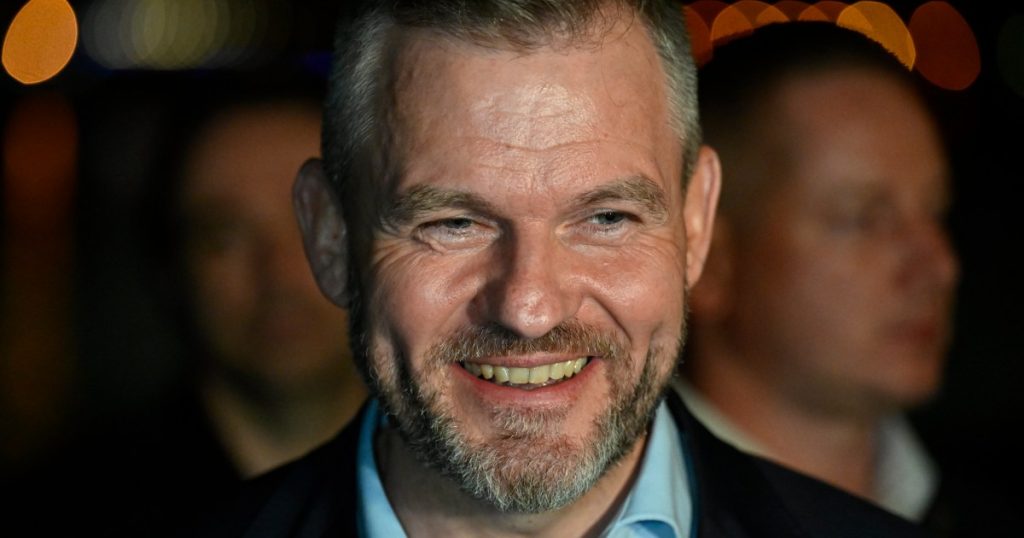In the recent Slovak presidential election, nationalist-left government candidate Peter Pellegrini emerged victorious, solidifying the influence of pro-Russian Prime Minister Robert Fico over the country. Fico, who has been in power for the fourth time, has shifted the country’s foreign policy towards more pro-Russian views and has implemented reforms in criminal law and media regulations, raising concerns about the rule of law. Pellegrini secured 53.26% of the vote, defeating pro-Western opposition candidate Ivan Korcok. Despite the limited executive powers of the Slovak president, they can veto laws and appoint constitutional court judges, potentially impacting Fico’s reforms that could ease punishments for corruption.
Fico’s coalition, which includes Pellegrini’s party, halted official Slovak shipments of weapons to Ukraine, citing concerns about Western influence in the war. Pellegrini emphasized his victory as a sign of support for the government’s initiatives, pledging to promote peace and oppose war. He portrayed Korcok as a warmonger for advocating arming Ukraine and insinuated that he may involve Slovak troops in the conflict, accusations that Korcok denied. Despite being seen as more moderate than Fico, Pellegrini assured that there would not be a significant shift in foreign policy under his presidency, affirming Slovakia’s commitment to the EU and NATO membership.
Korcok conceded defeat and congratulated Pellegrini but criticized his opponent for winning by spreading fear during the campaign. He argued that halting weapon supplies to Ukraine would not lead to peace but rather to Russia’s victory. Korcok, an independent candidate and former diplomat, had a background as Slovakia’s envoy to the EU and ambassador to the U.S., advocating for strong support for Ukraine during his tenure in centre-right Slovak governments between 2021-2022. Pellegrini, currently the speaker of parliament, had been appointed prime minister by Fico following public protests against corruption and the murder of an investigative journalist in 2018. Although he eventually formed his own party, Hlas (Voice), which is more centrist and liberal than Fico’s populist-leftist SMER-SSD, Pellegrini established a coalition government with Fico and the nationalist SNS last October.
The outcome of the Slovak presidential election reflects the ongoing tensions within the country’s political landscape, particularly regarding foreign policy orientations and the rule of law. With Pellegrini’s victory, the government is expected to pursue its agenda with greater legitimacy, while the opposition, led by Korcok, faces a challenging path in promoting its pro-Western stance. The divergence in views on Ukraine and Russia further underscores the complexities of Slovakia’s geopolitical positioning and its relationship with Western allies. Pellegrini’s moderate approach and commitment to maintaining Slovakia’s EU and NATO membership signal continuity in the country’s foreign policy, balancing between pro-Russian sentiments and Western alliances. Ultimately, the election outcome highlights the competing visions for Slovakia’s future direction and the role it will play in regional and international affairs under Pellegrini’s leadership.


